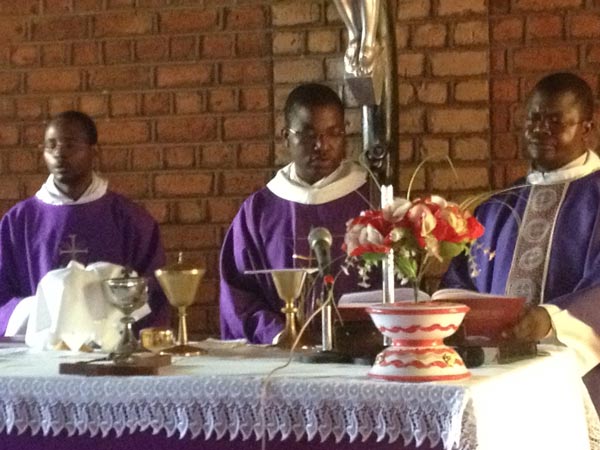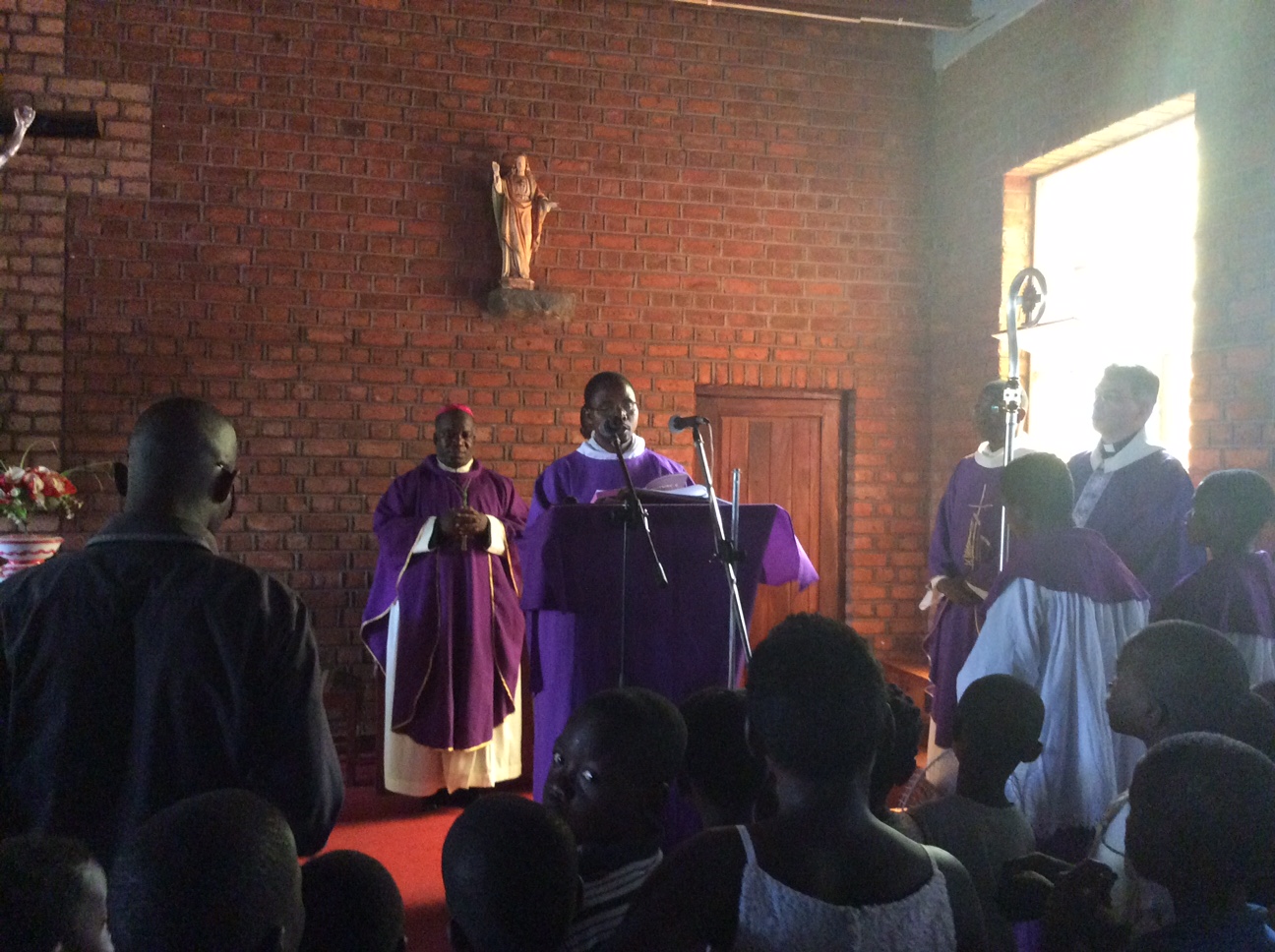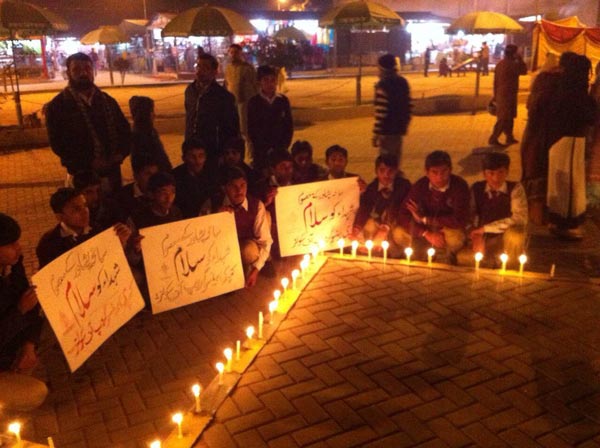Christmas opens a new time, a prospective of hope and redemption that starts from the infant in a manger, from the “Yes” of a girl of the periphery, from the birth into the world of a baby.
It is also time for novelty and new perspectives for the Community of Sant’Egidio in Africa. In Mpemba, a township about ten minutes by car from Blantyre, the largest city in Malawi, a priest and a deacon of the Missionary Priestly Fraternity of Sant’Egidio received in custody a parish dedicated to Saint Vincent De’ Paoli. It is the first parish that Sant’Egidio is asked to
take care of in Africa.
The priest is Fr. Ernest Kafunsa, a Malawian, to whom the parish has been assigned by the archbishop of Blantyre, Mons. Thomas Msusa. Fr. Ernest will be joined by Frank Gumbwa, he too from the little country in southern Africa.
The Church was fully packed this past December 21st to celebrate the entry of the new parish priest into his parish community. During the very festive liturgy the archbishop expressed his gratitude to Sant’Egidio for the gift bestowed upon the Church of Blantyre as well as his certainty that Fr. Ernest and Fr. Frank will be capable of expressing the paternal attitude and closeness to the poor that they learned and experienced during their training.
The mission of our two friends in Mpemba is clearly a challenging one. The parish’s territory is rather large, straddling the urban and rural areas, and includes, in addition to the principal church, nine outposts (chapels) spread over many directions and located several kilometers
from one another.






